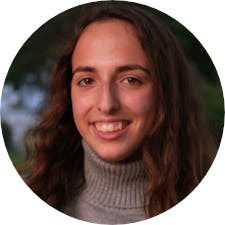This spring, the Community College of Vermont (CCV) is hosting a three-part virtual Abenaki speaker series. Jesse Bowman Bruchac delivered the first lecture on Feb. 18 and will be followed by Chief Don Stevens, who is set to give a one-hour presentation this evening, March 18, beginning at 5 p.m. Melody Walker Brook will give the final talk of the series on April 15
Bruchac — a Nulhegan Abenaki citizen and “a traditional storyteller, musician and Abenaki language instructor,” according to his website — spoke and sang to an audience of approximately 200 people when his presentation “Abenaki Creation Story, Language and Culture” kicked off the series in February.
“[The turnout for Bruchac’s talk] far exceeds any events we would ever do at CCV, probably minus graduation,” said Katie Mobley ’97, dean of enrollment and community relations at CCV, in an interview with The Campus. “I imagine the next two will continue to have a really high turnout, as well.”
Mobley partly attributes the higher-than-expected turnout to the accessibility that Zoom offers, which enabled community members across the 12 CCV locations — from Newport to Brattleboro to Burlington — to remotely attend the event. Restrictions related to Covid-19 pushed the talks to this online platform, which also allowed for the larger gathering of listeners.
Additionally, the onset and impact of Covid-19 postponed the Abenaki speaker series for about a semester, as it was originally planned to take place in person in the fall of 2020. These plans predated the pandemic and spawned in part from reflections on the institution’s history and core values, with CCV celebrating its 50-year anniversary in January 2020. The series is also part of CCV’s ongoing initiative to inform residents of Vermont — and with these potentially far-reaching talks, beyond Vermont — about Abenaki culture and history.
“Really broadly, I don’t think you can be an engaged or active citizen in our world right now and not be thinking about issues that impact the BIPOC community,” Mobley said. “It’s a value of CCV that we are a learning community and a community that examines where we are and where we came from.”
An anniversary committee, which was formed in part to arrange events and celebrations for the year that exemplify the college’s values, worked in close dialogue with today’s speaker, Chief Stevens, and eventually arrived at the decision to host an Abenaki speaker series.
About 15 years ago, Chief Stevens began serving on the Vermont Commission on Native American Affairs, where he headed the effort to “obtain legal recognition of the Abenaki People in Vermont and … acquire land for the Nulhegan Tribe which had been absent for over 200 years,” according to the website for the Vermont Abenaki Artists Association. Chief Stevens’ more recent work has also furthered calls for the state government to pass an official apology for Vermont’s history of eugenics. His talk is called “History of Abenaki in Vermont, Sovereignty, and Recognition.”
Mobley stressed that familiarizing oneself with the deep history of the indigenous people of Vermont is especially important within the community of CCV, as the college has campuses scattered throughout the state — and thus, primarily on land that was first stewarded by the Abenaki.
“I grew up in Vermont, and I don’t have any memory of the Abenaki ever being talked about in the curriculum,” Mobley said. “For CCV, we’re a community college. We reflect the Vermont community we’re in, and we really wanted to make sure that we were shining a light on this really rich history of the Abenaki People and all the different ways that they’ve impacted Vermont and the ways they are continuing to impact Vermont.”
Mobley cited the enthusiastic engagement of both students and faculty in issues of diversity, equity and inclusion as one key source of high interest in the talks. She anticipates that the series will continue beyond its three current segments, especially in light of the overwhelming turnout at the first talk, but that it may focus on “different communities or different areas.”
Brook will deliver her one-hour talk, “Indigenous Ways of Knowing, Healing, and the Path Forward,” on April 15 at 5 p.m. She is a citizen of the Elnu Abenaki Band, has previously served as the vice chair and chair of the Vermont Commission on Native American Affairs and is an Abenaki educator, activist and artist, according to the webpage announcing the series.
Anyone who registers online, including Middlebury students, is welcome to attend the upcoming talks by Chief Stevens and Brook. All that is required to register for an event is the completion and submission of a simple online form, through which a prospective participant can obtain the password-protected Zoom link and the key.

Becca Amen '22 is the Senior Local Editor.
She previously served as a Local editor, a staff writer and a copy editor.
Amen is a joint major in English and American Literatures and Philosophy.
During the summer of 2021, she interned at New England Review, where she recorded and produced an episode of their literary podcast. Her past stories include coverage on Ruth Hardy's run for Vermont State Senator and a report on the town of Middlebury's 2019 climate strike.
In addition to her work at The Campus, Amen hosts a radio show on WRMC, Middlebury's college radio, and serves as an editor for Middlebury's Blackbird art and literary journal.



